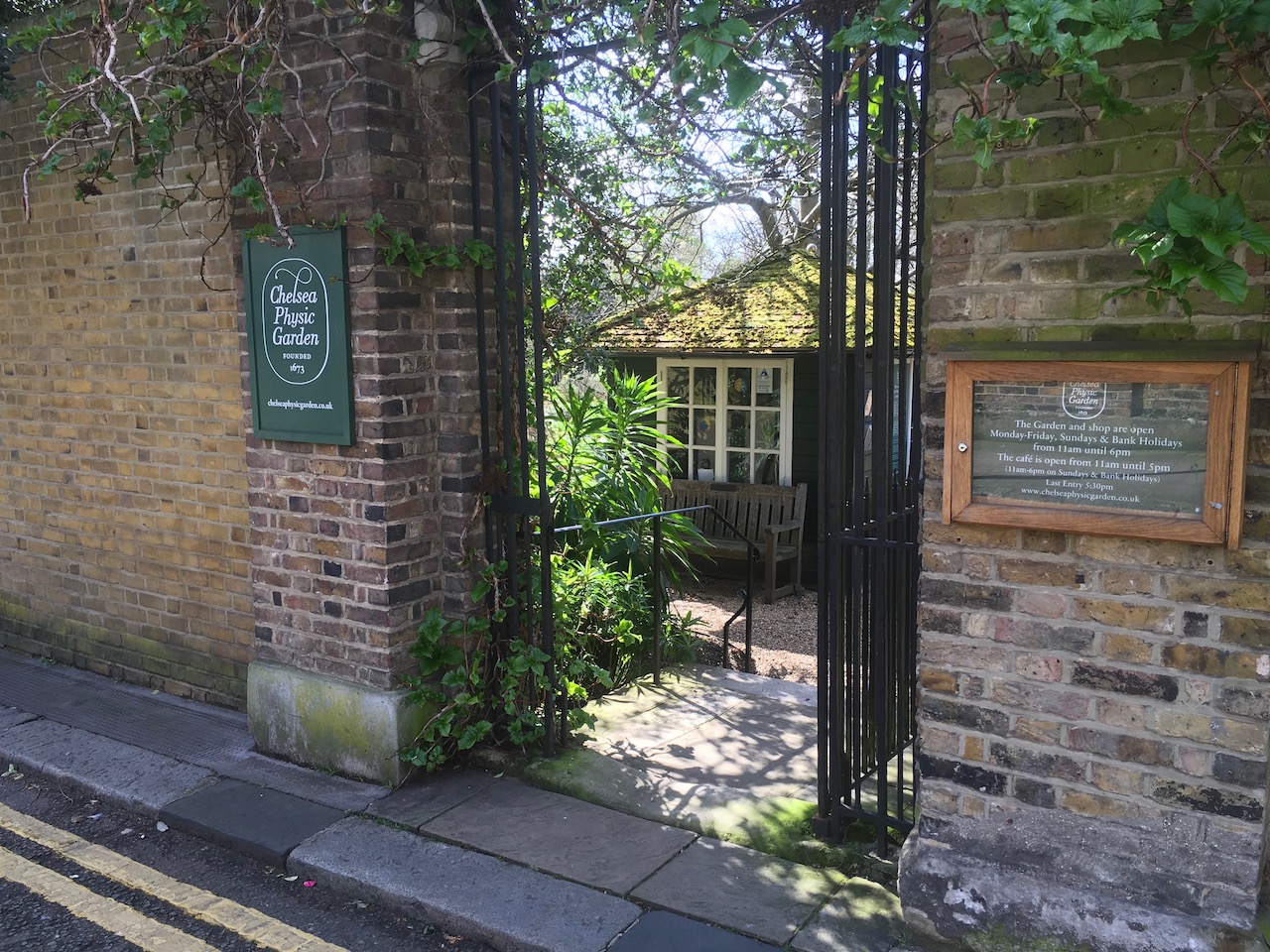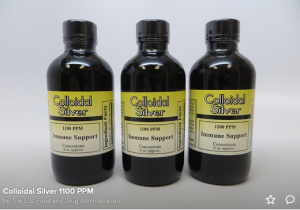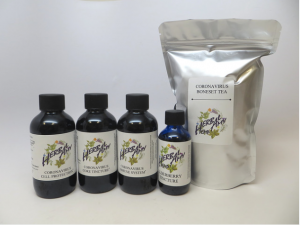Monday 16 March 2020

Chelsea Physic Garden – a secret piece of London
I went to London’s Chelsea Physic Garden today and am ashamed to say that it was my first visit. After all, I am a medic and should have seen the place many years ago, even when I was in training. Yet it seemed a sensible place to see, especially in these troubled times. It was in the open air, peaceful and quiet, and away from Covid Chaos. I was alone, so social distancing was not a problem and I could keep a long way from others. They, of course, could keep a long way from me. Specifically, the garden is all about healing.
In 1673, the Chelsea Physic Garden, now the oldest botanic garden in London, was established by the Apothecaries in order to grow medicinal plants. Apothecaries were once equivalent to the modern-day pharmacist. There is now a Worshipful Society of Apothecaries that can grant a licence to practise medicine in England and Wales. What better place to visit than their garden, when Covid-19 was flying towards me?
The place covers nearly four acres and has different sections. It is a wonderful place to think. Its 5000 plants are shared between the Garden of Medicinal Plants, the Pharmaceutical Garden, the Garden of World Medicine, the World Woodland Garden, and the Garden of Edible and Useful Plants. Edible and Useful was where I was headed. The Chelsea Physic Garden also has a café. Do not even look at their chocolate brownies if you intend to stay lean and athletic.
My reason for visiting the garden was to understand better why there are so many naturopathic claims to cure Covid-19. Gardens like the Chelsea Physic Garden are based on the use of plants, of many types, in the healing and mitigation of disease. Doctors have been using natural sources for so many reasons over many hundreds of years. There was a time when gardens like the Chelsea Physic Garden were the mainstay of regular medical treatment.

Colloidal silver – a recipient of a warning letter from the FDA
There have been plenty of miracle cures bandied about for Covid-19. Essential oils, herbal teas, diets, and colloidal silver. Even eating garlic was said to cure the disease and a recipe was circulated on social media. A further theory was that drinking a bleach-like liquid might do the trick. Believe me, that does not work either. None has evidence to support it and cease and desist letters have been sent to some. In the USA, the Food and Drug Administration (FDA) and Federal Trade Commission (FTC) have issued seven warning letters to companies for selling fraudulent Covid-19 products. These products were teas, essential oils, tinctures and colloidal silver.
Traditional Chinese Medicine (TCM) has also been advocated for Covid-19. Suggestions have included Qingfei Paidu soup made of ephedra and liquorice root, as well as other ingredients. The US National Institutes of Health has now warned that some of the suggested products may be contaminated with pesticides and other chemicals and that the results with the various medicines have been mixed.
There is also an amateur video, of a fully bearded and charming man who is both driving and coughing as he speaks. He suggests that substances such as oregano oil, mullen leaf, elderberry and garlic may be just the job for Covid-19. I have no idea of the basis of his suggestions and I do hope he was not infected while filming.
But my interest was in vitamins, especially A, D and C. The Garden of Edible and Useful Plants has a full section on the different vitamins, and some of the plants that contain them. Vitamin C has a section to itself, with plants such as Polygonum bistorta, chard, strawberry, common sorrel, and the leaves and flowers of the crown daisy featuring prominently. Each contains Vitamin C. The vitamin has long lurked in the shadows as a useful preparation to take, and not only for Covid-19. Its lack causes a disease called scurvy, but it is known that the vitamin does more than just avoid that disease. Vitamin C, known properly as ascorbic acid, is said also to boost immunity. The same has been said of Vitamins A and D.

Fancy a cup of tea? There is no evidence this works for Covid-19.
Based on this effect on immunity, some have suggested Vitamin C as a possible cure for Covid-19, or that it might at least reduce the symptoms, should the virus strike. There is some science to support it. In 2003, on the back of an epidemic of SARS, a short comment was published in the Journal of Antimicrobial Chemotherapy that suggested vitamin C might reduce the severity and duration of the common cold, but could also reduce the gravity of pneumonia. Further studies were suggested. In 2007, there was another report, this time in the Journal of the Royal Society of Medicine, which broadly suggested that Vitamin C had some beneficial effect against lung infections, in certain populations. However, more recently, with Covid-19 around, a combined team from Saudi Arabia, Canada and the USA has suggested that the use of Vitamin C, once a sufferer is suffering, is unlikely to be of great value.
One clinic, Love Medical in Colorado, got carried away and recommended Vitamin C doses 166 times higher than normal. Their YouTube video advocating this has now been taken down for violating YouTube’s Community Guidelines. Too much Vitamin C can do you harm, even if it is water-soluble, a property that allows you to pee out much of the excess.
What was my conclusion after visiting the Chelsea Physic Garden? In the days when apothecaries were treating patients, no one had heard of Covid-19. Nor, for that matter, had they heard of Vitamin C. It was not discovered until 1933. But had they known, they may have reached for chard or strawberry, conjured up a concoction, and sent you on your way. Vitamin C may help slightly, for reasons that are unclear. It certainly does more than just treat scurvy and may do something to immunity.
Vitamins apart, today was a big day for the country as the Prime Minister suggested that mass gatherings cease and everyone should avoid the office, pubs and travelling if they can. If one person in a family has either a persistent cough or high temperature, the whole family should self-isolate for 14 days. People over the age of 70 years should take particular care, as should pregnant women. So far this seems to be advice rather than instruction, but the Prime Minister reminded the country that the virus was spreading faster in London than elsewhere. It so happens that I am living in the epicentre of the UK epicentre, so somehow the desk where I write these words is becoming increasingly attractive.
Imperial College in London has predicted that an unmitigated epidemic would create 510,000 deaths in UK and 2.2 million in the USA. The demand for intensive care beds in both countries would be more than 30 times greater than the maximum supply. The authors recommended population-wide social distancing, home isolation of cases and school and university closures. Their best scenario estimates were 250,000 deaths in the UK and 1.1 million in the US. These are huge numbers.
No wonder GPs are preparing for what they are calling the NHS’s biggest crisis since it was created. Doctors are saying that they are still lacking the right equipment to protect themselves and a hospital specialist has written to say that one of his colleagues, who has a respiratory problem, spent last weekend writing his Will.

The situation this morning – 16 March 2020 (courtesy Center for Systems Science and Engineering at Johns Hopkins University)
China has reported that despite controlling Covid-19 by means of aggressive quarantining, they have identified six more imported cases, four from Spain and two from UK. Things are spiralling downwards rapidly in France, with the number of cases doubling every three days. Even to me that is frightening. A specialist in infectious diseases just outside Paris, Dr Benjamin Davido, has given a good description of the life he is now leading. His hospital is receiving a screening request for Covid-19 every two minutes and doctors have to evaluate a patient, and find a bed, every ten minutes. Of the caregivers involved, 40% have now tested positive for the virus. For this pandemic, those working in healthcare have drawn a very short straw.
The financial markets are no better and I am a regular receiver of warnings about my savings. New York is shutting schools, restaurants, bars and other public venues, and Los Angeles has said it will shortly do the same. Germany has shut its borders to non-essential travel and the Indian film industry has suspended all filming until the end of March. The Middle East has not been spared, with the UAE now having nearly 100 cases. Tourism and aviation, both key aspects of UAE life, have been hard hit. One look at the news bulletins, from whatever source they come, and it is evident that few on the planet will be unaffected.
We live in unpredictable times.
